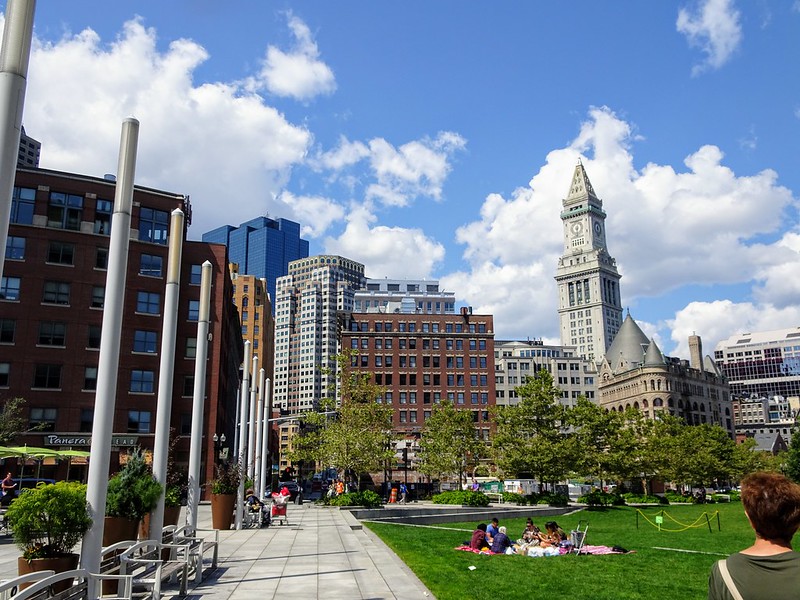
Photo: Vera Izrailit (Flickr)
Boston seeks partners for $500,000 ‘urban forest’ plan
15 October 2020
by Christopher Carey
The City of Boston has issued a request for proposals (RFP) to design its first ‘urban forest’ plan, which aims to develop strategies that promote the growth and protection of its urban canopy over the next 20 years.
Aligning previous planning efforts – including Climate Ready Boston, Imagine Boston 2030 and Resilient Boston – the RFP will prioritise transparent and collaborative planning that recognises and supports communities that have been disproportionately exposed to environmental stressors.
In addition to the environmental benefits of more greenery, the plan aims to cut down on the urban heat island effect, boost biodiversity and break up concrete landscapes to create additional stormwater retention opportunities.
Boston Mayor Marty Walsh said: “As we plan for our city’s future, we’re working to ensure Boston is an equitable, safe city for all residents.”
“We know how critical trees are as we fight climate change and improve the quality of life for all residents. This urban forest plan is the first of its kind in Boston and is an opportunity to ensure every neighbourhood has the resources they deserve and need.”
The RFP, which has been budgeted for US$500,000, is open for applications until 28 October.
Heat resilience
Boston was recently awarded a $280,070 Municipal Vulnerability Preparedness (MVP) Action Grant by the Commonwealth of Massachusetts to fund a strategic heat resilience planning study to cope with projected increases in extreme heat due to climate change.
The study will form a critical component of the Climate Ready Boston initiative to develop resilient solutions that prepare the city for the effects of climate change and explore a range of potential heat mitigation strategies, focusing on “hot spots” throughout the neighbourhoods of Roxbury, Dorchester, Mattapan, Chinatown and East Boston.
The City of Boston is among 41 municipal communities across the state that have received funding from the Massachusetts Executive Office of Energy and Environment Affairs through its MVP programme. Since the release of the Climate Ready Boston report, the city has completed a series of neighbourhood-level coastal resilience projects in East Boston, Charlestown and South Boston, and will soon announce reports and implementation roadmaps for the North End, Downtown and Dorchester.
Kathleen Theoharides, Massachusetts Energy and Environmental Affairs Secretary, said: “Boston is one of four communities that are leading studies on extreme heat in this new MVP grant cycle.
“This summer reminded us of the dangers of the urban heat island effect, particularly for our most vulnerable residents, and this work on heat resilience planning has the potential to serve as an important model for other regions across the Commonwealth.”







